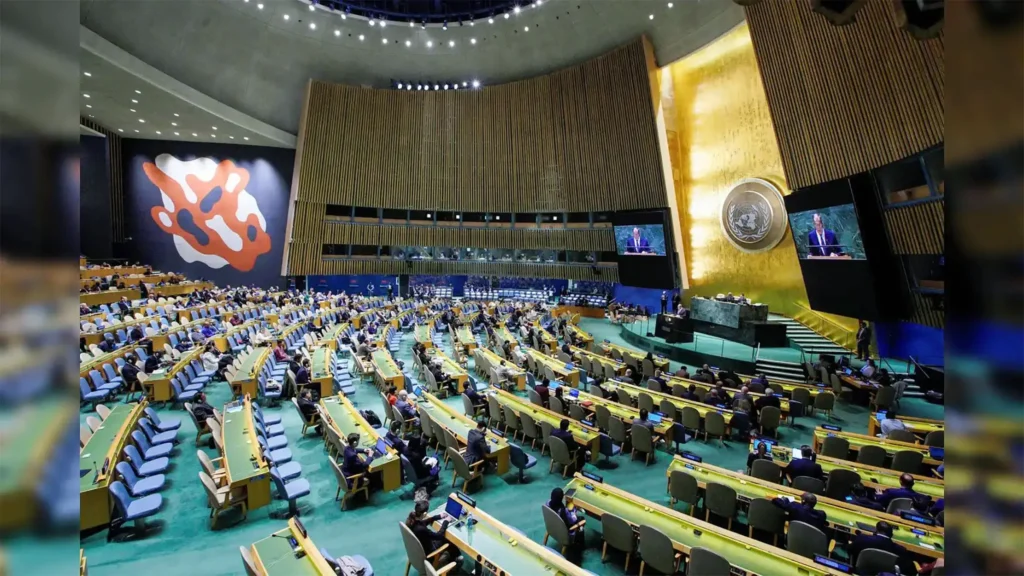The United Nations has opened a new chapter in the global conversation about artificial intelligence, launching the Global Dialogue on AI Governance at its New York headquarters on September 25. The initiative reflects a growing sense of urgency among world leaders to manage the influence of AI responsibly, ensuring that its development serves people everywhere — not just a privileged few.
Building a Framework for Shared Responsibility
At the meeting, UN Secretary-General António Guterres called the move a “vital step” towards international coordination on emerging technologies. He described AI as one of the most powerful forces reshaping economies, societies, and human relationships — a force that demands shared oversight rather than fragmented regulation.
According to Guterres, the Global Dialogue is built around three priorities.
First, it seeks to establish safe and transparent AI systems guided by international law and respect for human rights. Second, it aims to align national and regional AI frameworks to reduce regulatory conflict and strengthen cooperation. Third, it promotes open and inclusive innovation, ensuring that developing countries can access AI tools, knowledge, and opportunities rather than being left behind in the digital race.
Expert Panel to Monitor Global AI Trends
The Secretary-General also announced the creation of an Independent International Scientific Panel on AI, made up of 40 global experts. The panel will analyse both the risks and opportunities of artificial intelligence — from misinformation and deepfakes to data privacy and ethical design — and provide early warnings to governments and international bodies.
Ensuring Equal Voices in the AI Debate
Bärbel Bas, President of the 80th Session of the UN General Assembly, said the new mechanism shows rare unity among UN member states. “In a world divided by politics and conflict, countries are finding common ground on AI,” she said. “No single nation should control the direction of this technology — the Global Dialogue ensures everyone has a say in how it evolves.”
Delegates from various countries voiced similar views. Kwabena Asaku, Deputy Director at Ghana’s Ministry of Foreign Affairs, warned that deepfakes and other digital threats pose serious challenges to social stability. “Only collective effort can protect societies from the darker side of AI,” he noted.
China’s Expanding Role in Global AI Governance
The session also spotlighted China’s growing role in global AI cooperation. Mariya Mahmoud Saraco, Nigeria’s Minister of State for Health and Social Welfare, said China’s involvement is crucial to maintaining balance and fairness in international AI discussions.
Chen Zhimin, Vice President of Fudan University and Executive Director of the Global AI Governance Innovation Center, added that China has introduced several initiatives aimed at strengthening global collaboration. He said more joint projects and AI-based public goods are expected in the coming years, helping to steer the global system towards openness, inclusivity, and sustainability.
Strong Global Support for Responsible AI
This initiative builds on a UN General Assembly resolution passed on August 26, 2025, which received 182 votes in favour out of 193. The resolution signalled overwhelming international support for multilateral AI governance — a recognition that shared rules are essential to guide responsible innovation and prevent technological inequality.
By setting this foundation, nations have agreed to work together on standards, data protection, and digital literacy. The goal is not to limit innovation but to ensure that it benefits everyone safely and equitably.
A Defining Moment for the Future of AI
The Global Dialogue on AI Governance represents a clear shift in how the world views artificial intelligence — not just as a tool for progress, but as a shared responsibility. With growing risks linked to misinformation, bias, and unequal access, this mechanism offers a framework for nations to collaborate openly and act collectively.
The message from the UN gathering was unmistakable: AI must remain in human hands, guided by fairness, trust, and global cooperation. The world has entered a new era where how we govern technology will define how it serves humanity.

